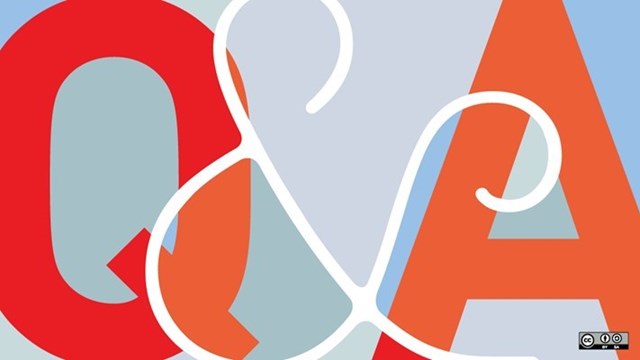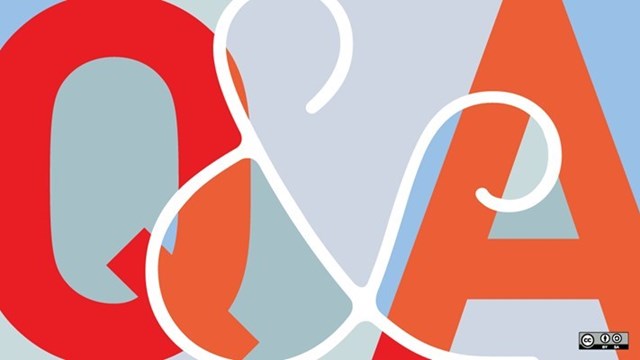Among the many realities made visible (or more visible) by the COVID-19 crisis is the domino theory: when one falls, the others follow. Conceived (and largely disproven) as a political metaphor, the notion has proven more useful when applied to issues of the economy and public health. The co-op and condo community, unfortunately, is one of those dominos. As the pandemic spread and the threat of mass infection and death rose, the reality of an economic slowdown, or even a full shutdown, came into clearer focus for boards and community administrators. While cash flow is essential to the day-to-day operations of buildings and associations, the welfare of owners and shareholders and the long-term economic success of tenants are arguably more intimately linked to the decision-making process of residential boards than in some other segments of the economy.
Extraordinary Circumstances, Considered Responses
Scott Piekarsky is an attorney specializing in community law with New Jersey-based firm Phillips Nizer. “The biggest problem,” he says, “is that people are out of work and cannot afford all of their overhead, including community association maintenance fees. Owners are falling behind, and associations may begin to struggle to meet their monthly obligation in paying their vendors.”
The question is how elected boards of directors should react to this challenge as community leaders. Should they pursue legal remedies (like collection actions or late fees, for example) immediately, or show some restraint considering the current extraordinary circumstances? “We are taking all action that the courts permit us to take,” explains Piekarsky. “No one is getting evicted, and no sheriff sales are occurring regarding foreclosures. Some judges are entering money judgments, and others are not. It makes sense to start proceedings so you can get in line [for relief]. If you wait, there may be a much longer wait list and a time delay to get that relief. [Legal action] also may be used as a deterrent or tool to get people to try to get current.”
When it comes to commercial tenants, says Piekarsky, “They all need to be pursued—but restaurants and retail are in many cases also struggling. This pandemic is affecting everyone.” In making their decisions as to how to proceed with legal remedies, boards must take the long view. “Boards need to keep up with their regular delinquency policies,” advises Piekarsky. “However, reaching out by phone and offering payment plans versus getting nothing is a very sensible approach. At one site, we are making phone contact with owners, and we’re seeing positive results. I just got off the phone with a physician who did not understand the nature and urgency of his account delinquency. I think that perhaps by waiving some late fees, we will be seeing a large check very soon.”
One Hand Feeds the Other
Cash flow in co-op and condominium communities is a matter of survival, not profit. Communities pay their way by collecting revenue. That revenue comes from two general categories. The first is monthly payments from owners, known as maintenance in co-ops and common charges in condominiums and HOAs. These monthly charges cover operations—everything from salaries to upkeep of buildings to payments of real estate taxes, and in the case of co-ops, underlying mortgage payments. The second category of income comes from commercial tenants and other non-owner sources like laundry room concessions. Not all co-ops and condos have these types of tenants, but those who do may be experiencing a ‘double-whammy,’ with arrearages from both resident owners and commercial tenants.
Andrew Wagner, an attorney with Anderson Kill, a law firm based in Manhattan, says that “[t]he pandemic has rendered many co-op and condo unit owners and commercial tenants alike unable to pay their monthly charges. This has placed great financial stress on co-ops and condos, which have financial obligations of their own: payroll, utilities, underlying mortgages, just to name a few. Presently, New York co-ops are prohibited from commencing nonpayment proceedings in Housing Court to collect arrearages from their unit owners and commercial tenants, and condos cannot commence lien foreclosure actions in Supreme Court. These moratoria are in place until mid- to late August 2020. As an aside, although an argument can be made that these cases can be commenced based on certain language in the governor’s Executive Orders, there is enough ambiguity in them to dissuade me from recommending the commencement of any arrears-related litigation at this time.
“Since boards have fiduciary obligations to their cooperative corporations or condominium associations,” Wagner continues, “they must take whatever steps are necessary to collect arrears, even though doing so in the short term may not be possible. But there are things that can and should be done. For example, default letters should be sent to unit owners and tenants in arrears, hopefully inviting them to contact management to discuss their situation and enter into a forbearance agreement.” This type of agreement temporarily suspends their obligation to pay monthly charges for some specified period of time—but also contains an acknowledgment of the balance owed, and a repayment schedule on a mutually agreed basis. Generally, such an agreement will require that the payor remain current on subsequent charges as they become due, once the repayment period commences.
What happens if residential unit owners do not respond, or decline to enter into an agreement? Wagner explains: “In the case of cooperative shareholders, a rent demand can be served so that a nonpayment proceeding can be commenced promptly after the litigation moratorium ends. Additionally, a default notice should be sent to the unit owner’s lender pursuant to the recognition agreement, which might result in the lender paying the arrears to preserve its interest in the unit. Similarly, a condominium lien can be recorded without violating the moratorium, so a foreclosure action can be commenced when permitted.”
For commercial tenants, Wagner says, “A negotiated forbearance agreement is also preferable, but other considerations apply as well. For example, the lease should be carefully reviewed to determine whether, and under what circumstances, the security deposit may be applied towards arrears. This is very important, because if the business files for bankruptcy protection, it will be more difficult to apply it if the petition is filed within 90 days of its application by the landlord towards arrears. If the security is in the form of a letter of credit, however, it generally may be applied without consequence. Notably, there is presently a prohibition against commencing actions against lease guarantors of certain types of commercial tenancies, so that must be evaluated as well. Finally, an inquiry should be made as to whether or not the tenant has applied for a Paycheck Protection Program (PPP) loan, since up to 25% of the loan proceeds can be applied towards rent and related expenses.”
All Venues Are Not Equal
Howard Goldman, a principal in the Needham, Massachusetts-based law firm of Goldman and Pease, notes the evolving nature of law as it applies to this conundrum in Massachusetts. He explains: “In a decision on Wednesday, May 6, 2020, Federal Court Judge Stearns granted a temporary injunction enjoining the Massachusetts Attorney General from enforcing its prohibition on certain debt collection activities during the COVID-19 State of Emergency. The decision found that the AG’s 90-day moratorium on debt collections activities was a violation of the First Amendment Rights of collection agencies, without providing meaningful protections for consumers. We previously advised our Massachusetts clients to refrain from initiating collections procedures during this moratorium. We now advise our Massachusetts clients, particularly creditors, condominium associations, and property managers, on the activities that are permissible due to the new court injunction.
“Issued and made effective on March 26,” Goldman continues, “[Regulation] 940 CMR 35.00, known as ‘Unfair and Deceptive Debt Collection Practices During the State of Emergency Caused by COVID-19,’ sought to protect consumers from unfair and deceptive debt collection practices by prohibiting various collections activities such as initiating phone calls, drafting demand letters, and initiating lawsuits to debtors during the coronavirus pandemic.”
Specifically, the Regulation established that it was an unfair or deceptive act or practice for any creditor, including a debt collector, to:
• Initiate, file, or threaten to file any new collection lawsuit;
• Initiate or threaten to initiate any legal or equitable remedy for the garnishment, seizure, attachment, withholding of wages, earnings, property, or funds for the payment of a debt to a creditor;
• Initiate or threaten to initiate remedy for the repossession of any vehicle;
• Apply for, cause to be served, or enforce a capias warrant;
• Visit or threaten to visit the household or place of employment of a debtor at any time; and
• Confront or communicate in person with a debtor regarding the collection of debt in public.
“The effect of the temporary injunction on the Regulation is that standard debt collection practices may now resume,” explains Goldman, “including initiating phone calls to discuss payment options, drafting demand letters, and preparing and filing lawsuits to collect unpaid debt. Creditors are no longer restricted within the 90-day moratorium on initiating their normal collection activities. Condominium associations, property managers, and all other creditors are now permitted to resume their debt collection communications with unit owners and other debtors, with demand letters and initiating legal complaints to obtain unpaid common area charges and other unpaid debts.
“So,” he says, “continue to remind unit owners that condominium fees and costs are essential for the maintenance and support of the entire community, and that lien enforcement actions will proceed if delinquencies are not resolved promptly.”
Overall, boards must consider two factors when deciding whether to pursue aggressive tactics against arrearages, both at the owner/shareholder and at the commercial tenant level: First, how critical is their current cash flow problem relative to how bad that long-term problem may become if they evict owners, shareholders, or commercial tenants? And second, what is their obligation to their community to be understanding about the depth and impact of the COVID crisis on owners, shareholders, and commercial tenants? It’s up to boards and their legal advisors to determine whether community cohesion and prudent compassion trump real financial obligation, and what liability could result from either decision.
A J Sidransky is a staff writer/reporter for New England Condominium and a published novelist.










Leave a Comment